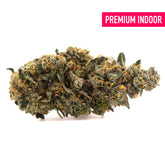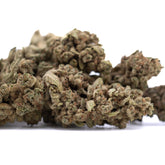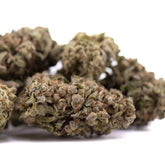Best Time to Take CBD: Morning vs Evening for Maximum Benefits
Timing your CBD dose can make a big difference in its effectiveness, yet many users overlook this crucial aspect of their wellness routine. Whether you're new to CBD or looking to optimize your current regimen, understanding when to take CBD can significantly impact the benefits you experience.
The question of CBD morning or night isn't just about personal preference—it's about aligning your dosing schedule with your body's natural rhythms and your specific wellness goals. Research suggests that the timing of CBD consumption can influence everything from energy levels to sleep quality, making it essential to find your optimal schedule.

Why CBD Timing Matters: The Science Behind Strategic Dosing
Before diving into specific timing recommendations, it's important to understand why CBD timing for effects matters so much. CBD interacts with your body's endocannabinoid system (ECS), a complex network of receptors that helps regulate various physiological processes including sleep, mood, appetite, and immune response.
Your ECS operates on a circadian rhythm, meaning its activity naturally fluctuates throughout the day. This biological clock influences how your body processes and responds to CBD, making optimal CBD timing a key factor in maximizing its therapeutic potential.
Additionally, CBD's effects can vary based on several factors:
- Your individual metabolism
- The type of CBD product used
- Whether you take it with or without food
- Your current stress levels and daily activities
- Any other medications or supplements you're taking
Understanding these variables helps explain why there's no universal answer to "should I take CBD in the morning or at night"—the best approach depends on your unique circumstances and wellness objectives.

Morning CBD: Starting Your Day with Balance
Benefits of Morning CBD Consumption
Taking CBD in the morning can provide several advantages for your daily routine. Many users find that morning dosing helps establish a sense of calm focus that carries throughout the day. Here's what you might expect from best time of day to take CBD oil being in the morning:
Enhanced Focus and Mental Clarity Morning CBD consumption may help reduce the mental fog that often accompanies stressful days. Unlike THC, CBD doesn't produce psychoactive effects, making it suitable for daytime use when you need to maintain mental sharpness.
Stress Management Starting your day with CBD can help your body better manage stress responses throughout the day. This proactive approach may prevent stress from accumulating and becoming overwhelming by evening.
Appetite Regulation For those looking to maintain healthy eating habits, morning CBD might help regulate appetite and reduce cravings throughout the day.
Mood Stabilization Regular morning CBD use may contribute to more stable moods, helping you approach daily challenges with greater emotional resilience.
Morning Dosing Considerations
When implementing a morning CBD schedule, consider these important factors:
Start Low and Go Slow If you're new to morning CBD, begin with a lower dose than you might use in the evening. This allows you to gauge how CBD affects your energy levels and daily activities.
Timing with Coffee Many users wonder about combining CBD with their morning coffee. While generally safe, some people find that caffeine can counteract CBD's calming effects. Experiment to find what works best for your system.
Product Selection For morning use, consider full-spectrum CBD products that contain beneficial terpenes like limonene and pinene, which may provide energizing effects.
Consistency is Key To experience the full benefits of morning CBD, consistency is crucial. Try to take your dose at the same time each morning to help regulate your body's response.
Who Benefits Most from Morning CBD?
Morning CBD consumption tends to work well for individuals who:
- Experience morning anxiety or stress
- Need help maintaining focus throughout the day
- Want to establish a proactive wellness routine
- Prefer to address wellness needs early rather than reactively

Evening CBD: Unwinding for Optimal Recovery
The Case for Nighttime CBD
Evening CBD consumption has gained popularity among users seeking better sleep quality and end-of-day relaxation. When is the best time to take CBD for sleep-related benefits? Research suggests that taking CBD 1-2 hours before bedtime may be optimal.
Sleep Quality Enhancement Many users report that evening CBD helps them fall asleep faster and experience deeper, more restorative sleep. This improvement in sleep quality can have cascading benefits for overall health and daily performance.
Muscle Recovery and Relaxation For those who exercise regularly or have physically demanding jobs, evening CBD may support muscle recovery and help ease physical tension accumulated throughout the day.
Stress Decompression Evening CBD can serve as a natural transition between your active day and restful night, helping your mind process daily stresses and prepare for recovery.
Pain Management If you experience chronic discomfort that worsens throughout the day, evening CBD dosing may provide relief when you need it most.
Evening Dosing Strategies
To maximize the benefits of nighttime CBD, consider these approaches:
Timing Your Dose Take your evening CBD 30 minutes to 2 hours before your desired bedtime. This allows sufficient time for absorption and the onset of effects.
Creating a Bedtime Ritual Incorporate CBD into a consistent bedtime routine that might include dimming lights, avoiding screens, and engaging in relaxing activities like reading or gentle stretching.
Product Considerations Evening users often prefer CBD products with sedating terpenes like myrcene and linalool, which may enhance relaxation and sleep quality.
Dosage Adjustments Some people find they need slightly higher doses in the evening compared to daytime use, as the goal shifts from maintaining alertness to promoting relaxation.
Condition-Specific Timing Recommendations
Different health conditions and wellness goals may benefit from specific timing strategies. Here's how to optimize when to take CBD based on your primary objectives:
For Anxiety Management
Morning Approach: Take CBD 30-60 minutes before anticipated stressful situations or as part of your morning routine to establish baseline calm.
Evening Approach: Use CBD to help process daily stress and prepare for restorative sleep, which is crucial for anxiety management.
Split Dosing: Many anxiety sufferers benefit from dividing their daily dose between morning and evening for consistent support.
For Sleep Disorders
Optimal Timing: Take CBD 1-2 hours before bedtime consistently. This allows time for absorption and helps establish a routine that signals sleep readiness to your body.
Avoid Late Morning: If using CBD specifically for sleep, avoid morning doses that might interfere with natural circadian rhythms.
For Chronic Pain
Around-the-Clock Approach: Consider multiple smaller doses throughout the day rather than one large dose, maintaining consistent CBD levels in your system.
Pre-Activity Timing: Take CBD before activities that typically trigger discomfort.
For Focus and Productivity
Morning Priority: Take CBD 30-45 minutes before starting work or mentally demanding tasks.
Avoid Evening for This Purpose: High evening doses might interfere with the alertness needed for productivity-focused goals.

The Art of Split Dosing: Dividing Your Daily CBD
Many experienced CBD users find that splitting their daily dose between morning and evening provides the most comprehensive benefits. This approach, often called "micro-dosing throughout the day," can help maintain consistent CBD levels in your system.
How to Implement Split Dosing
Start with Your Total Daily Dose Determine your effective daily CBD amount, then divide it strategically based on your needs.
Common Split Ratios
- 50/50: Equal morning and evening doses for balanced all-day support
- 30/70: Smaller morning dose, larger evening dose for sleep-focused benefits
- 70/30: Larger morning dose, smaller evening dose for daytime wellness support
Monitor and Adjust Track how different ratios affect your energy, mood, and sleep quality. Quality CBD products make it easy to measure and adjust doses accurately.
Benefits of Split Dosing
Sustained Effects: Maintains more consistent CBD levels throughout the day Targeted Benefits: Allows you to address different needs at different times Lower Individual Doses: May reduce the risk of unwanted effects from large single doses Cost Efficiency: Often more economical than using separate products for day and night
Timing CBD with Meals and Other Supplements
The relationship between CBD timing and food consumption significantly affects absorption and effectiveness. Understanding these interactions helps optimize your best time for CBD consumption.
CBD and Food Interactions
Taking CBD with Meals Consuming CBD with fatty foods can increase absorption by up to 300%. This is because CBD is fat-soluble and requires lipids for optimal uptake.
Best Foods for CBD Absorption
- Avocados
- Nuts and seeds
- Coconut oil
- Fatty fish
- Full-fat dairy products
Empty Stomach Considerations While CBD absorbs faster on an empty stomach, this approach may also lead to more variable effects and potentially reduce overall absorption.
Interactions with Other Supplements
Melatonin: When combining with evening CBD for sleep, take melatonin 30-60 minutes before CBD for optimal timing.
Magnesium: This mineral can enhance CBD's relaxing effects when taken together in the evening.
B-Complex Vitamins: Morning B-vitamin supplementation pairs well with morning CBD for energy and mood support.
Vitamin D: Can be taken with CBD at any time, but morning consumption with CBD may support mood regulation.
Medication Timing Considerations
If you take prescription medications, consult with your healthcare provider about optimal CBD timing to avoid potential interactions. General guidelines include:
- Space CBD and medications 2-3 hours apart when possible
- Monitor for changes in medication effectiveness
- Consider blood level monitoring for critical medications
- Maintain consistent timing once you establish a routine
Creating Your Personalized CBD Routine
Developing a consistent CBD routine requires patience, observation, and willingness to adjust based on your body's responses. Here's how to establish your optimal CBD schedule:
Week 1-2: Baseline Establishment
Choose Your Starting Time Decide whether to begin with morning, evening, or split dosing based on your primary wellness goals.
Start with Low Doses Begin with 5-10mg doses and use high-quality CBD products to ensure accurate dosing.
Track Your Experience Keep a simple log noting:
- Time of dose
- Amount taken
- Effects noticed
- Sleep quality
- Energy levels
- Mood changes
Week 3-4: Optimization Phase
Adjust Timing Based on your observations, refine when you take CBD for maximum benefit.
Fine-tune Dosage Increase or decrease amounts based on effectiveness and any unwanted effects.
Consider Product Changes Different CBD products may work better at different times of day.
Month 2 and Beyond: Long-term Refinement
Seasonal Adjustments Your optimal CBD timing might change with seasons, stress levels, or life circumstances.
Product Rotation Some users benefit from rotating between different CBD products to prevent tolerance.
Professional Consultation Consider working with a healthcare provider familiar with CBD to optimize your routine.
Common Timing Mistakes to Avoid
Even experienced CBD users sometimes make timing errors that reduce effectiveness. Here are key mistakes to avoid:
Inconsistent Timing
Taking CBD at random times prevents your body from developing a predictable response pattern.
Ignoring Your Chronotype
Night owls and early risers may need different timing strategies based on their natural circadian rhythms.
Not Accounting for Absorption Time
CBD effects typically begin 30-120 minutes after consumption, depending on the delivery method.
Combining Conflicting Goals
Using energizing CBD products at bedtime or relaxing formulations when you need alertness.
Rushing the Process
Expecting immediate results without giving your endocannabinoid system time to adjust to regular CBD use.
Advanced Timing Strategies
For users seeking to maximize CBD's benefits, these advanced strategies can provide additional optimization:
Circadian Rhythm Alignment
Light Exposure Timing Combine morning CBD with bright light exposure to support healthy circadian rhythms.
Temperature Regulation Use evening CBD in conjunction with cooling your environment to promote better sleep.
Bioavailability Optimization
Sublingual Timing Hold CBD oil under your tongue for 60-90 seconds before swallowing for faster absorption.
Exercise Timing Light exercise 30-60 minutes after CBD may enhance absorption and effects.
Stress Response Timing
Anticipatory Dosing Take CBD before known stressful events rather than waiting for stress to occur.
Recovery Timing Use CBD immediately after stressful situations to support faster recovery.
Monitoring and Adjusting Your CBD Timing
Long-term success with CBD requires ongoing attention to how timing affects your experience. Regular assessment ensures you're getting maximum benefits from your routine.
Key Metrics to Track
Sleep Quality Indicators
- Time to fall asleep
- Number of nighttime awakenings
- Morning energy levels
- Sleep duration
Daytime Wellness Markers
- Energy stability throughout the day
- Stress response patterns
- Focus and concentration levels
- Mood consistency
Physical Comfort Measures
- Pain levels at different times
- Muscle tension patterns
- Exercise recovery rates
- Overall physical comfort
When to Adjust Your Timing
Consider modifying your CBD timing for effects when you experience:
- Diminished benefits from your current routine
- Changes in your daily schedule or stress levels
- New health challenges or goals
- Seasonal shifts affecting mood or energy
- Side effects that interfere with daily activities
Frequently Asked Questions About CBD Timing
Should I take CBD in the morning or at night for anxiety?
For anxiety management, many people benefit from split dosing—a smaller morning dose for proactive stress management and a larger evening dose for relaxation and sleep support. The best time for CBD depends on when your anxiety symptoms are most prominent.
How long does it take for CBD to work?
CBD effects typically begin 15-45 minutes after sublingual administration or 30-120 minutes after oral consumption. Topical applications may provide localized effects within 15-20 minutes.
Can I take CBD multiple times per day?
Yes, many users find success with multiple daily doses. Optimal CBD timing often involves 2-3 smaller doses rather than one large dose, providing more consistent effects throughout the day.
Will morning CBD make me tired?
Quality CBD products shouldn't cause daytime drowsiness when used appropriately. If you experience fatigue, consider reducing your dose or switching to a product with more energizing terpenes available at hemp-flower.com.
What's the best time of day to take CBD oil for sleep?
For sleep benefits, take CBD oil 1-2 hours before bedtime. This timing allows for proper absorption and helps establish a bedtime routine that signals sleep readiness to your body.
Does it matter if I take CBD with or without food?
Taking CBD with fatty foods can significantly increase absorption, but empty stomach consumption may provide faster onset. Experiment to find what works best for your schedule and goals.
How do I know if my CBD timing is working?
Effective CBD timing should result in noticeable improvements in your target areas (sleep, stress, comfort) without interfering with daily activities. Keep a simple log to track patterns and optimize your routine.
Can I change my CBD timing routine?
Yes, your optimal CBD schedule may evolve based on changing life circumstances, stress levels, or health goals. Allow 1-2 weeks when adjusting timing to properly assess the new routine's effectiveness.
Conclusion: Finding Your Personal CBD Sweet Spot
The question of when to take CBD doesn't have a universal answer because everyone's endocannabinoid system, lifestyle, and wellness goals are unique. What matters most is finding the timing that aligns with your body's natural rhythms and supports your specific objectives.
Whether you discover that morning CBD helps you maintain calm focus throughout the day, evening doses improve your sleep quality, or a split routine provides comprehensive support, the key is consistency and patience. Your optimal CBD timing for effects may take several weeks to establish as your endocannabinoid system adapts to regular supplementation.
Remember that timing is just one piece of the CBD puzzle. Product quality, dosage accuracy, and consistency all play crucial roles in your success. Starting with best time of day to take CBD oil experimentation while using high-quality products ensures you're giving yourself the best chance for positive outcomes.
As you develop your personalized CBD routine, pay attention to your body's signals and don't hesitate to make adjustments. The beauty of CBD lies in its versatility and your ability to customize its use to fit your unique lifestyle and wellness needs.













